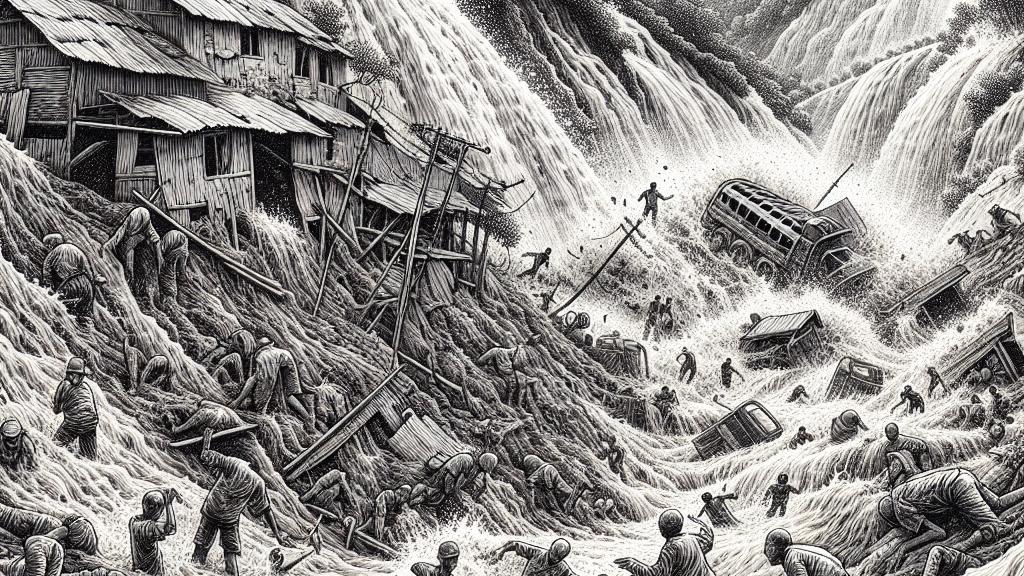Tragedy Unfolds: Mudslides Claim 157 Lives in Southern Ethiopia!
Overview
- Mudslides in southern Ethiopia have tragically claimed at least 157 lives amid relentless rainfall.
- The disaster escalated during search operations for earlier mudslide victims, leading to further losses.
- Vulnerable individuals, including many young children and pregnant women, were among those lost in this heartbreaking incident.

The Incident Overview
On July 22, 2024, a series of devastating mudslides struck the Kencho Shacha Gozdi district located in Gofa Zone of southern Ethiopia. This tragedy unfolded due to heavy rainfall, characteristic of the region's rainy season, which typically lasts from July to mid-September. The first landslide occurred early in the morning, catching many locals unaware and burying them under thick layers of mud. As search and rescue efforts commenced to locate survivors of this initial slide, the region was hit by a second, brutal landslide, which compounded the disaster further. Reports indicate that at least 157 individuals have lost their lives, revealing how the wall of mud harshly disrupted the lives of so many.
A Community in Mourning and Despair
The consequences of this disaster have left an entire community in profound mourning. Eyewitness accounts paint a somber picture of devastation, where families are shattered, and children are found embracing the bodies of their parents. Local officials reported that a significant portion of the victims were not only young children but also pregnant women. This amplifies the tragedy, as many families have been wiped out completely. Local authorities are calling for urgent support and resources for the affected families, as they grapple with their immense losses and start a long and difficult recovery process. The scenes of sorrow and despair reflect the deep emotional scars this event has implanted in the community.
The Broader Context of Climate Change's Impact
This tragic event is a stark indicator of the increasing vulnerability of regions like southern Ethiopia facing climate change, leading to more frequent and severe weather events. Studies show that climate change is intensifying rainfall patterns globally, resulting in an uptick in landslides and flooding in many areas worldwide. The Ethiopian government must prioritize urgent disaster preparation measures, including improved infrastructures like drainage systems and effective emergency response protocols. Additionally, campaigns to increase community awareness about disaster preparedness can play a crucial role in reducing risks. As this nation recovers from its current tragedy, the need for proactive strategies to combat the looming dangers of climate change becomes alarmingly clear, aiming to protect future generations.

Loading...